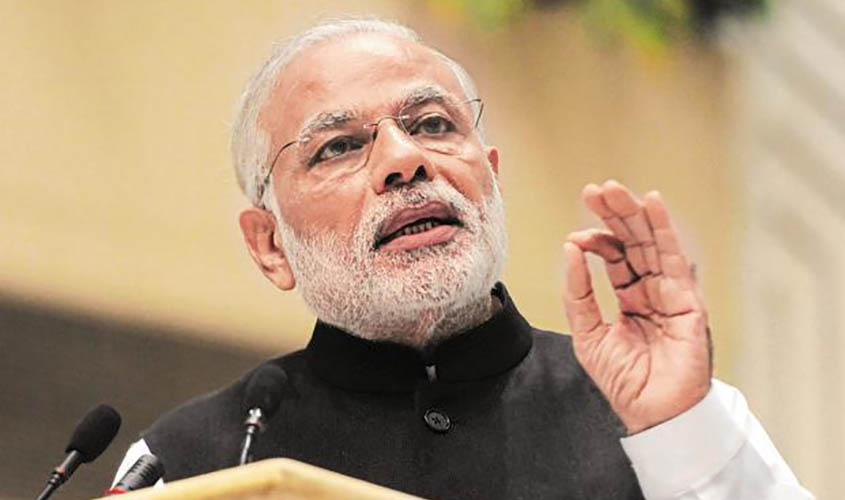Officials must be warned not to utilise coercive powers given by the Sonia system.
Narendra Modi was elected in 2014 and re-selected in 2019 because voters believed that he was the leader best able to ensure a better life for them. Not a Gandhian life of simplicity but a move upwards in terms of better housing, incomes, healthcare and education. The inability of North Block to shake itself free of the fetters that were used by the UPA to bind the millions active in trade, commerce, manufacturing and services has led to a decline in the rate of growth of the overall economy. Errors made by North Block and the RBI in demonetisation and the self-defeating (from the purpose of getting revenue) rate structure in GST have resulted in numerous units closing down. Taxpayers are faced with the prospect of persecution if not prosecution as a consequence of a confusing array of regulations that seem designed to collect bribes rather than to promote probity and efficiency. All this when ensuring double digit growth is key to the future success of India. This cannot take place unless the civil service understands that primacy in such an effort should be given to civil society and not the bureaucracy. Sardar Patel was instrumental in deciding that the civil service in India (as inherited from the British period) should in effect remain unchanged in ethos and activity. Colonial methods of recruitment and training were retained, as were the laws and regulations in force before 15 August 1947. Members of the Imperial Civil Service regarded “natives” as being unworthy of independence of action. Major decisions therefore went through the sieve of official approval, and individual independence and initiative were filtered out. Among the consequences was the shrinking of the Indian economy to a level much below even the limited levels that had been reached in the past. Money was drained out of the pockets of the “natives” so as to feed the bureaucratic machine and its (almost entirely self-serving) actions. Prime Minister Narendra Modi is among the most fervent admirers of Mahatma Gandhi. The Mahatma chose not one of the two best candidates, Bhimrao Ramji Ambedkar or Vallabhbhai Patel, but Jawaharlal Nehru, who never hid the fact that he was more English than the English themselves. Clearly the Mahatma believed that Nehru would ensure a modern India. As he himself said, “When I am gone, Jawaharlal will speak my language”. What the chosen Prime Minister spoke was the language of Gosplan, the Soviet planning agency. Acting on the axiom that government was always to be preferred over the people, the “commanding heights” of the economy were taken over by the state, which since the demise of Sardar Patel was controlled by Nehru and his acolytes.
At the same time as the powers of the bureaucracy were expanded to a level greater even than that enjoyed by that institution under British rule, Nehru sharply reduced the salaries of senior civil servants. This was a combination that was fatal to integrity, as discerned by Lee Kuan Yew, who ran his own country in a more practical manner after studying the errors made in India. The new
Prime Minister Modi needs to revive the informal sector, for this is the foundation for enterprises higher up the food chain. They should be exempt from GST for a 5-year period, while those employing more labour should be given cuts in rates rather than brought under a higher rate structure. A flat GST rate of 8% irrespective of output should be levied on all enterprises that are below Rs 100 crore in annual turnover, with added incentives for units employing more labour. Businesspersons should be judged not on the basis of their net worth or turnover but on the quantum of labour that they employ, with privileged treatment given to those enterprises consciously adopting measures that expand employment. Such units should be protected from troublemakers seeking to close them down through recourse to legal stratagems, moves that have resulted in a horrendous volume of investment lying fallow in legal quicksand. Down the line, officials need to be warned by Prime Minister Modi not to utilise the vast coercive powers they have been given by the Sonia system save in exceptional circumstances. They need to focus almost entirely on a handful of major depredators and make an example of them. The Sonia reversal of the post-1992 rollback of regulations and penalties needs to be reversed once more. Only then can a climate conducive to growth get created, rather than a situation where (for many entrepreneurs) there is zero appetite to run a business in an India where there is still too much reliance on the police methods favoured by the Sonia regime.

